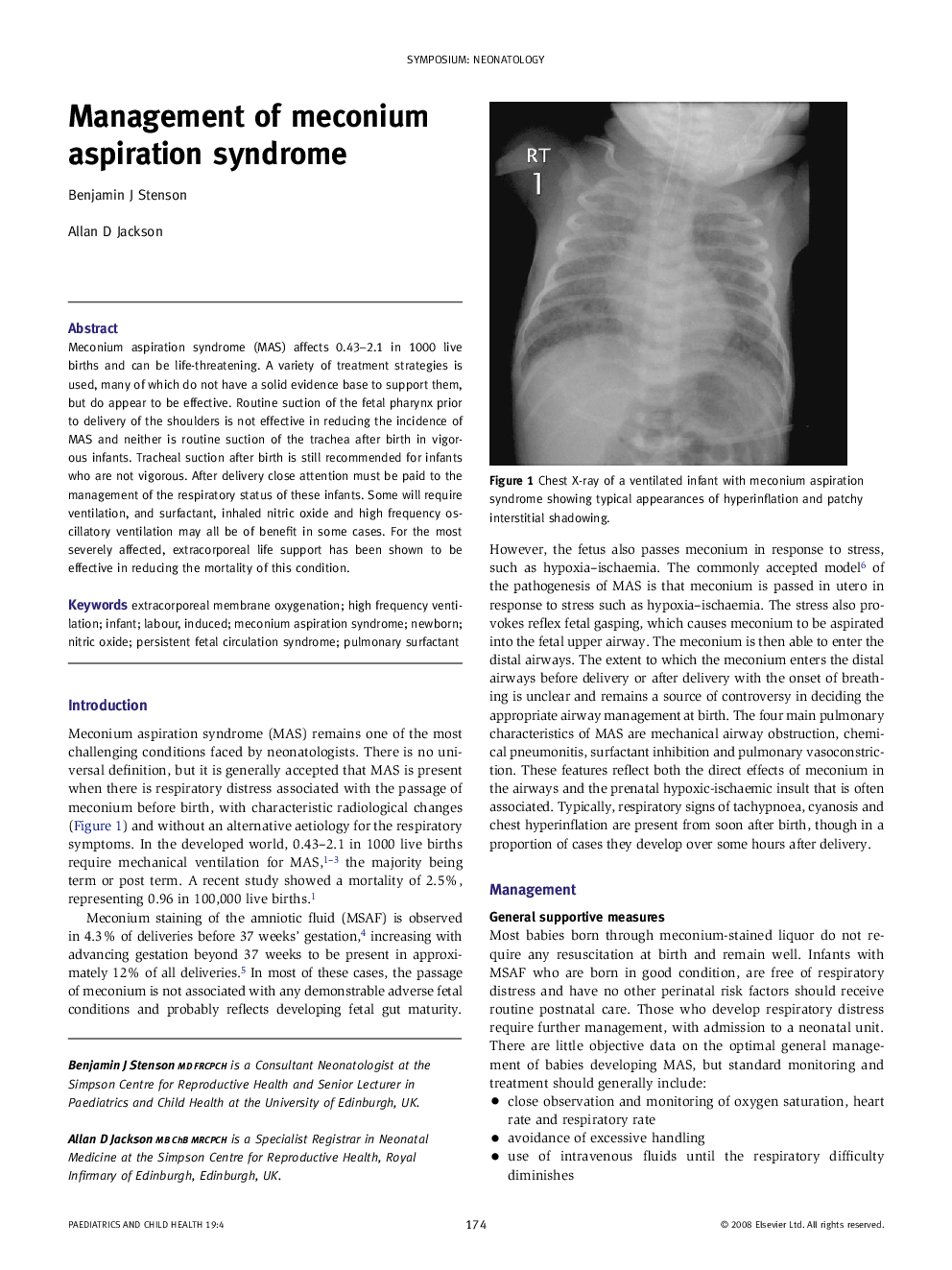| Article ID | Journal | Published Year | Pages | File Type |
|---|---|---|---|---|
| 4173143 | Paediatrics and Child Health | 2009 | 4 Pages |
Meconium aspiration syndrome (MAS) affects 0.43–2.1 in 1000 live births and can be life-threatening. A variety of treatment strategies is used, many of which do not have a solid evidence base to support them, but do appear to be effective. Routine suction of the fetal pharynx prior to delivery of the shoulders is not effective in reducing the incidence of MAS and neither is routine suction of the trachea after birth in vigorous infants. Tracheal suction after birth is still recommended for infants who are not vigorous. After delivery close attention must be paid to the management of the respiratory status of these infants. Some will require ventilation, and surfactant, inhaled nitric oxide and high frequency oscillatory ventilation may all be of benefit in some cases. For the most severely affected, extracorporeal life support has been shown to be effective in reducing the mortality of this condition.
